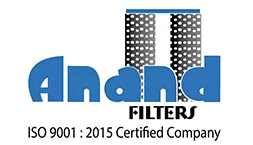
Hydraulic Fluid Filtration for Modern Heavy Equipment: Trends, Contaminant Control & Cost Savings
Heavy machinery in the mining, agricultural, and construction business performs jobs that require both power and precision, and the basis of such machinery is industrial hydraulic filtration systems. The performance of hydraulic systems is mainly dependent on the condition and maintenance of hydraulic fluid filtration.
Hydraulic fluid filtration is essential for maintaining equipment reliability, extending component life, and reducing operating costs in modern heavy machinery.
Contamination is one of the most significant causes of equipment failure and unscheduled maintenance of hydraulic systems. Dirt, dust, water, and oxides impair the oil’s lubricating properties, increasing the likelihood of component erosion or blockage. By establishing a robust hydraulic fluid filtration program, companies can achieve peak performance and fewer repairs.
Understanding Hydraulic Fluid Filtration
A hydraulic oil filter is a component of a hydraulic system which uses a porous filter element to channel hydraulic fluid, extracting harmful contaminants. The filter element arrests contaminants, preventing them from re-entering the fluid stream and damaging downstream equipment.
Contaminants are anything that reacts with the hydraulic fluid, like chemicals, water, or dirt. Because they are micrometer-sized, hydraulic oil filters must be sized appropriately to filter even the smallest particles.
There are three basic points of filtration in a hydraulic circuit:
Return lines: These filters usually operate under low pressure. They may be located in the tank or in the return line, collecting foreign matter as the fluid returns to the reservoir.
Pressure lines: High-pressure filters are used downstream of the pump to protect expensive components. High-pressure filters can remove contaminants from the internal system.
Off-line: Filters that operate independently of the central hydraulic system. This filter draws fluid from the reservoir, filters it through an off-line filter, and returns it. Because these filters are in an accessible position, it is usually easier to clean them.
Common Contaminants and Their Impact on Hydraulic Systems
Numerous industrial tools depend on hydraulic systems for power to perform strenuous tasks. These systems are susceptible to contamination, however, and this can lead to severe operational issues, excessive wear and tear, and catastrophic failure. To ensure fluid cleanliness, peak performance, and eliminate such hazards, industrial hydraulic filtration systems are essential. Here are various forms of contamination experienced in hydraulic systems:
Particle Contamination: This refers to dust, dirt, or metal shavings that may enter the system through reservoirs, seals, or during maintenance procedures.
Water Contamination: Water that enters the hydraulic system and is not soluble therein. The metal parts may corrode and rust.
Air contamination: When hydraulic fluid contains tiny air bubbles, its compressibility is reduced, leading to erratic system performance.
Chemical Contamination: Over time, hydraulic fluid may oxidize, forming acids and varnishes that can affect parts and mechanical efficiency.
Types of Hydraulic Oil Filters and Filter Elements
The system design, pressure range, and degree of pollution all play a role in choosing the best hydraulic oil filter. Contemporary hydraulic equipment frequently includes four main varieties:
Suction Filters: They are situated at the pump suction to protect the pump against large contaminants.
Pressure Filters: They are situated downstream of the pump to collect contaminants resulting from pump wear.
Return Filters: These are installed in the return line to remove impurities before the fluid returns to the reservoir.
Breather Filters: These are fitted at the reservoir to prevent airborne contaminating elements from entering the system.
The hydraulic filter element types that affect filter efficiency are also of importance:
Pleated Paper Filters: The most common type of filter is the pleated paper filter element. Constructed of cellulose, metal mesh, and synthetic fibers.
Depth Filter Elements: Depth filter elements consist of layers of filter media that capture contaminants as they pass through.
Carbon Block Filters: The carbon block filter element is made from compressed activated carbon. These filters are usually employed for water purification to remove contaminants such as taste, odor, and chlorine.
Cellulose Filters: The cellulose filter element is the most widely employed in hydraulic systems today. These filters are made by tightly weaving natural cellulose fibers to produce a porous material.
Latest Trends in Hydraulic Filtration Technology (2025)
Advances in innovative technologies are expected to rapidly change hydraulic fluid filtration by 2025, making it more sustainable.
A technological revolution is underway in the hydraulic sector, bringing cutting-edge technologies that improve production, sustainability, and efficiency. This year, the industry has experienced a series of changes in hydraulic technology that are revolutionizing practice in manufacturing, construction, agriculture, and automotive applications.
Hydraulic systems are being updated and adapted to digitalization and sustainability initiatives. The desire for safer, more intelligent systems is here. The main idea is to hybridize them with intelligent automation, combining performance and energy efficiency.
The leading hydraulic filter manufacturers have reduced waste, used eco-friendly materials, and complied with ISO environmental regulations.
Hydraulic System Maintenance Tips to Improve Filtration Efficiency
Following proper hydraulic system maintenance tips can significantly increase filtering effectiveness and prevent costly malfunctions. Essential procedures consist of:
Frequent Inspection: The most critical thing in keeping a hydraulic filter in working order is frequent inspection. Regular inspections of the filter will reveal wear, corrosion, or other issues before they become serious.
Filter Change: In addition to frequent inspection, it is necessary to replace hydraulic filters according to the manufacturer’s recommendations, as the filter loses its ability to keep the oil clean by removing dirt and impurities that accumulate within the filter itself.
Monitoring Fluid Contamination: Another very vital part of keeping the hydraulic filter in efficient working order is monitoring fluid contamination. Contaminants such as dirt, water, and air may enter the hydraulic system through various channels, leading to imperfect operation. It is well to make frequent inspections of the oil for traces of contamination, such as froth, discoloration, or other signs.
Clean Operating Conditions: Clean operating conditions are essential to the long life and proper operation of hydraulic devices; therefore, it is necessary to keep the area around hydraulic engines clean to prevent the entry of any dirt and other foreign bodies.
Operators can minimize wear, prolong filter life, and maintain steady hydraulic performance by following these hydraulic system maintenance tips.
Choosing the Right Hydraulic Filter Manufacturer
Sustained productivity and stable oil cleanliness depend on your choice of a hydraulic filter manufacturer with appropriate credentials. Here is something to consider:
- Solid related manufacturer understanding leads to long-term security and good service.
- Each heavy equipment application is different. Look for manufacturers who will design custom filters.
- Reputable manufacturers provide dependable performance and durability in the hydraulics sector.
Indian companies like Anand Filters have established foundations that are beginning to set standards for the world of filtration.
Conclusion
Reliable, long-lasting, and efficient heavy construction equipment is built on clean hydraulic oil. Advanced hydraulic fluid filtration can save companies more in operation costs, extend the life of vital components, and significantly reduce wear. With the right filtration technology, careful maintenance, and intelligent monitoring, hydraulic systems can become high-performance, economical assets.
The choice of a certified hydraulic filter manufacturer, the use of efficient filters, and following good hydraulic system maintenance advice will make the difference between continual repairs and flawless operation.

